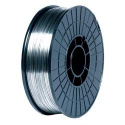|
Hey guys - just wanted to ask a few questions. I'm currently 24 - I've been working full-time and going to university on and off since high school. I didn't try particularly hard in high school, but greatly enjoyed the sciences. I didn't graduate with great marks, but I was always given a lot of support and encouragement by my teachers. Now, i've got about 1 years worth of university classes under my belt. I had to COMPLETELY take biology and chemistry (never did them in highschool) and had to retake Math 12, as I had forgotten most of everything from high school. I have always enjoyed math, but I wouldn't say I was ever very good at it. Now comes the big question: Can a 24 year old with average intelligence go through with an engineering degree? I have managed to save up enough money to fully submerse myself in university, but I don't want to throw a tonne of time and money at something that is impossible. Basically I am looking for reassurance - someone to tell me that it IS possible for me to succeed and become an engineer. I have absolutely no problem with working hard, it's my raw intelligence I am worried about. Will somebody tell me if it is truthfully possible for a person in my situation to succeed? Sorry for the e/n h4x fucked around with this message at 08:55 on Dec 14, 2009 |
|
|
|

|
| # ? May 15, 2024 17:24 |
|
Chem E student at UC Berkeley here. Wish me luck on my transport phenomena final tomorrow
|
|
|
|
h4x posted:Now comes the big question: Can a 24 year old with average intelligence go through with an engineering degree? I have managed to save up enough money to fully submerse myself in university, but I don't want to throw a tonne of time and money at something that is impossible. I dropped out of university myself and only just graduated at 26. The age thing isn't really an issue at all, you won't be the oldest person in any of your courses. Intelligence isn't really required to complete an engineering degree at all. If you want to get good grades, get an internship and then hopefully a job what you really need is a work ethic and good social skills (for an engineer). Nguyen Leet posted:I feel a little insecure about the program and it potentially being a gimped degree because it's relatively new (five years old). Right now I'm interested in zero energy buildings and the design philosophy behind them in addition to the analysis behind it. I understand this might be more architectural than engineering. I'm also currently trying to learn a few programming languages on my own. I'd recommend getting a generic ME degree and trying to get a relevant internship in the field you're interested in.
|
|
|
|
h4x posted:Hey guys - just wanted to ask a few questions. I turned 25 last week and I'm starting College basically from scratch in January. I had some severe problems preventing me from successfully going to school, so before I just quit back when I was 19, I managed a 2.0 GPA among some core math and history classes. Don't fret. Since then I've been a retail monkey, a delivery boy for mechanics and a welder. I've grown up and gotten a real work ethic, a real drive and desire to learn this and get this job, and knowledge that I really truly want this career, what it will take to get there, and a willingness to do it as much as the knowledge that if I actually put real effort into it at all, I'd have graduated with high marks years ago. Saying you're average intellectually instead of Anyway, you're probably a bit more mature than some stupid kid coming in at 17/19 who is just doing what daddy says. You're doing it with your own money! You'll have an advantage, IMO. On that note, you ARE getting a pell grant, right?
|
|
|
|
h4x posted:
You don't need to be a genius to get a engineering degree. Things such as focus, good work quality and discipline are much more important in the long run. Also most real-world engineering doesn't have constant amounts of high level math. Things such as being able to work well with others, learn how to use all the tools and also pick up many practical on the job skills are the most important things. A decent amount of math/science ability is just required to survive school. Plus the dedicated to wade through massive amounts of useless problems with no application to real-world things.
|
|
|
|
h4x posted:Will somebody tell me if it is truthfully possible for a person in my situation to succeed? Don't worry about it. The drive is much more important than the raw intelligence, and frankly I suspect you're a lot smarter than you think.
|
|
|
|
Thank you all of you so much for the motivational words. I don't think I can get a "pell grant" because I live in Canada, although I do believe I will be able to get some type of grant money because of my current university marks. I'll come back in about a year and tell all of you how I am doing. Thanks again. 
|
|
|
|
dayman posted:Searched through the thread and noticed a trend; a glut of EE and ME's but almost no CE's. Is that because there's a shortage or because I'm one of those rare CE graduates that was enticed to join SA. Civil engineering student graduating in a week checking in. I've addressed some of this before in the "secrets of your major thread so I'll break it down again here for your help. Civil Engineering (at a public university) - Yes, we get made fun of a lot, sometimes it's with good reason, oftentimes not so much. At my university for instance we get the same programming/math requirements as all the other engineering majors. - This major is generally taught as Civil and Environmental engineering, as such you will have one of the higher percentages of women (30-40%), most of whom are focusing on environmental engineering work. They are good people, and most likely will be engaged to their high school sweethearts. - You get to go outside for your work, and often travel. You can't bring the bridge to you, there's no factory (except for modular sections and parts), the job is where it is and as such be ready to get your hands dirty a little. - We have to dabble in everything. Civil engineers on a project often have to cross over into understanding a lot of other topics, so to summarize: Thermodynamics. Well since you could design a power plant, you need to know every HVAC system and type of generator. Not a discipline but should be mentioned. Fluids, oh god fluids. It gets worse that rivers and natural bodies of water are nearly impossible to make good assumptions for, it's often based on intuition. Plus you'll learn after all the standard fluid mechanics stuff about precipitation and statistical storm profiles and watershed reactions over areas generally several thousand acres, it sucks, you'll wonder what god would think statistics and fluid mechanics should ever mix outside of a research paper. Because of this there's often as many grad students and undergrads doing fluids as there are fluids professors Structures. Starts off with moment and shear diagrams, truss analysis and the like, then you get to matrix analysis of beams, stiffness and flexibility matrices, rigid offsets, plastic analysis and suddenly you are in over your head. Design classes are interesting, easier, but heavy on codes to understand. Then you learn for analysis things like Timoshenko Plate Theory and Finite Element Analysis and your mind is blown. Materials. No, Materials science majors often do not learn about asphalt, concrete, or glu-laminated wood beams. That lovely honor falls on you to learn, because no one else uses these materials nearly as much. Programming. No, this isn't kind C++ and MATLAB they taught you freshman year, this is Fortran, still the standard for Civil Programs. That high-end finite element analysis system is running via the oldest programming language. CS and EECS students laugh or weep at you if you mention you have computer modeling and do it all in Fortran. Then you find out a civil engineer who can program in Fortran gets paid 2-3x the amount a EECS or CS major would get paid if he was hired to program a Civil program. The (few) people in Civil not scared off by this will find permanent employment and make more money in one day than most engineering majors will in three. Geotechnical Engineering. This is a relatively small sect, they only outnumber fluids people here. You spend hours testing dirt over and over, or playing with dirt in the field. Soil and rock mechanics are key, but have fun being the initial lynchpin for an engineering project -- nothing else goes up until you finish your work. Environmental Engineering. Thought you escaped bio and chem? Think again! You'll need to understand atmospheric plume models and other contaminent discharge scenarios, then a lot of legalese. Then you have to learn wastewater and drinking water treatment, chemistry will sneak up really fast. There's also biological processes, biological treatments, etc. Lab work here is similar to a microbiology lab, pray you don't break a micropipetter. Construction Management. Part business, part running around a site yelling at people, and the reason people make fun of us often. These people have more free time because they study more general concepts and their work is a lot less time consuming except the one class where they have to learn estimating materials (count every beam in the blueprints for a building, I dare you). They'll get the highest-paid jobs starting off in a decent economy, but do the least engineering. They still are hard workers though when given direction. Transportation and Surveying. Not offered at my university, but many schools have them, also specialist stuff. Generally speaking, take a technical writing course no matter what engineering major if your university doesn't incorporate it into your major, it's valuable in resume writing, and makes a good impression on the job. Job experience is key, that includes internships. Engineering firms love having interns, and you will learn much more in the field than in the classroom often as for most businesses theory has to be put aside and special techniques are used to solve problems quickly.
|
|
|
|
canoshiz posted:Chem E student at UC Berkeley here. Wish me luck on my transport phenomena final tomorrow Man, my transport final was terrible when I took it (back in spring 2005). There was this dumb question about ice melting on a pond, and that's about all I remember. Graduate transport was way better anyways. h4x posted:Can a 24 year old with average intelligence go through with an engineering degree? I have managed to save up enough money to fully submerse myself in university, but I don't want to throw a tonne of time and money at something that is impossible. Sure. Mathematics has never come naturally for me, so I had to work really hard (and I still have to think a lot, even after taking real/complex analysis at the graduate level). If you would have asked me in high school if I wanted to be an engineer, I would have had serious doubts. Success in an engineering program is way less about raw intelligence and way more about doing your homework and preparing properly for exams. Foyes36 fucked around with this message at 01:59 on Dec 15, 2009 |
|
|
|
Blindeye posted:Civil engineering student graduating in a week checking in. I've addressed some of this before in the "secrets of your major thread so I'll break it down again here for your help. If you are in design do not expect tons of field time. Not to much to look at when the location is an open field or a river with no bridge... quote:- We have to dabble in everything. Civil engineers on a project often have to cross over into understanding a lot of other topics, so to summarize: When I worked at a power plant I didn't give a crap about the HVAC or generator. Except to look up how much it weighs and then design concrete/steel/soil for it. quote:Fluids, oh god fluids. It gets worse that rivers and natural bodies of water are nearly impossible to make good assumptions for, it's often based on intuition. Plus you'll learn after all the standard fluid mechanics stuff about precipitation and statistical storm profiles and watershed reactions over areas generally several thousand acres, it sucks, you'll wonder what god would think statistics and fluid mechanics should ever mix outside of a research paper. Because of this there's often as many grad students and undergrads doing fluids as there are fluids professors Fluids not so hard. Models are hard to make with anything in nature. But there are a lot of programs that can be used to help with modeling. quote:Structures. Starts off with moment and shear diagrams, truss analysis and the like, then you get to matrix analysis of beams, stiffness and flexibility matrices, rigid offsets, plastic analysis and suddenly you are in over your head. Design classes are interesting, easier, but heavy on codes to understand. Then you learn for analysis things like Timoshenko Plate Theory and Finite Element Analysis and your mind is blown. Personally this is where I concentrated in school. I went to a university that is much more in to practical knowledge and not tons of theory. Plate Theory and Finite are typically 500 level courses... quote:Materials. No, Materials science majors often do not learn about asphalt, concrete, or glu-laminated wood beams. That lovely honor falls on you to learn, because no one else uses these materials nearly as much. Asphalt is only important if you are in transportation. Concrete is all of spec 3, 4, 5K psi. Glu-lam is easy to pick out of a table fyi. quote:Programming. No, this isn't kind C++ and MATLAB they taught you freshman year, this is Fortran, still the standard for Civil Programs. That high-end finite element analysis system is running via the oldest programming language. CS and EECS students laugh or weep at you if you mention you have computer modeling and do it all in Fortran. Then you find out a civil engineer who can program in Fortran gets paid 2-3x the amount a EECS or CS major would get paid if he was hired to program a Civil program. The (few) people in Civil not scared off by this will find permanent employment and make more money in one day than most engineering majors will in three. Shocked that Fortran is even taught anymore at some universities. quote:Geotechnical Engineering. This is a relatively small sect, they only outnumber fluids people here. You spend hours testing dirt over and over, or playing with dirt in the field. Soil and rock mechanics are key, but have fun being the initial lynchpin for an engineering project -- nothing else goes up until you finish your work. Arguably the most important part of any project. Tough field because of so many variables in soil. quote:Environmental Engineering. Thought you escaped bio and chem? Think again! You'll need to understand atmospheric plume models and other contaminent discharge scenarios, then a lot of legalese. Then you have to learn wastewater and drinking water treatment, chemistry will sneak up really fast. There's also biological processes, biological treatments, etc. Lab work here is similar to a microbiology lab, pray you don't break a micropipetter. If you are civil and want nothing to do with enviro then you can pretty much take one class that covers wastewater and drinking water. quote:Construction Management. Part business, part running around a site yelling at people, and the reason people make fun of us often. These people have more free time because they study more general concepts and their work is a lot less time consuming except the one class where they have to learn estimating materials (count every beam in the blueprints for a building, I dare you). They'll get the highest-paid jobs starting off in a decent economy, but do the least engineering. They still are hard workers though when given direction. For the civil Engineer that does not want to design. Easy stuff. Most schools are starting to make a separate degree for CM. My wife has a degree in CM and she does all of the above. Some places would rather have a civil in the position but it would only be to understand the design process more. quote:Transportation and Surveying. Not offered at my university, but many schools have them, also specialist stuff. Transportation is probably the biggest discipline in Civil. Surprised it is not offered at a public uni. quote:Job experience is key, that includes internships. Engineering firms love having interns, and you will learn much more in the field than in the classroom often as for most businesses theory has to be put aside and special techniques are used to solve problems quickly. Get internships in school for sure. I take by special techniques you mean design programs. Also remember that you can really only get in depth in ONE discipline. If you try to do a bit of everything you will have a harder time finding a job because you don't have enough knowledge in a certain discipline to be useful.
|
|
|
|
Super good news -- I got selected for a new position within the company's manufacturing training group. I will be traveling to sites to interview SMEs (subject matter experts) to gather information on the processes/equipment/machinery they work on, including all refinery operations and chemical production operations. I take this information and make information databases, training manuals, training presentations, and other information documentation. Essentially, "taking the human catalog of knowledge and putting it on paper." 20% travel component to all sites around the world. Really excited about this one. Also get a new office on the third floor. Huzzah!
|
|
|
|
Does anyone besides me spend their entire day solving MRB issues, writing process plans, and generally correcting mistakes that the guys on the factory floor or suppliers make?
|
|
|
|
Jesschen posted:Super good news -- I got selected for a new position within the company's manufacturing training group. That sounds like a pretty sweat gig.
|
|
|
|
Necc0 posted:You physics majors are insane and I don't know how you do it. If I was smarter that'd definitely be the major I chose. Me and my roommate are EE majors and he's switching to physics, and laughing at me because he thinks he's gonna have it easier than me
|
|
|
|
MaxxBot posted:Me and my roommate are EE majors and he's switching to physics, and laughing at me because he thinks he's gonna have it easier than me I would rather shoot myself than do EE (doing physics now). For me at least, physics is way, way easier.
|
|
|
|
I got my undergrad degrees in Finance and Information Systems and I've decided that I want to go into engineering (either mechanical or industrial.) How difficult would it be for me to be accepted to a graduate program with a completely unrelated undergrad degree. I am willing to take all remedial classes necessary. Would I be better off going back to undergrad and doing an accelerated 5-year BS/MS degree? Unfortunately this option would be much more expensive and I am guessing that it would take 3.5-4 years (having already completed many core University requirements with my prior degrees.) Thank you.
|
|
|
|
badatshess4ever posted:I got my undergrad degrees in Finance and Information Systems and I've decided that I want to go into engineering (either mechanical or industrial.) How difficult would it be for me to be accepted to a graduate program with a completely unrelated undergrad degree. I am willing to take all remedial classes necessary. Would I be better off going back to undergrad and doing an accelerated 5-year BS/MS degree? Unfortunately this option would be much more expensive and I am guessing that it would take 3.5-4 years (having already completed many core University requirements with my prior degrees.) Thank you. You can't really. You would need a good 2 years of pure engineering courses to catch up. Even then you would be behind other grad students but have the same foundation to fill in the gaps. Namarrgon posted:I would rather shoot myself than do EE (doing physics now). For me at least, physics is way, way easier. It depends on your school but a physics major is much harder. As an EE you only have to get good at EM/Circuits/comm. As a physics major you have to get pretty good at EVERYTHING. EE isn't very hard, its just a lot of work.
|
|
|
|
Calef posted:I graduated with a B.S. in Chemical Engineering and could not find a job to save my loving life. Or more specifically, none of the big companies with high-paying jobs that I thought I deserved would even interview me. This was because It doesn't matter what your major is, GPA is important to get your foot in the door and internships are important for work experience. Don't let anyone tell you otherwise.
|
|
|
|
Would it be prudent to double specialize as an Electrical Engineer? Like most EE's I'm assuming, I'm most interested in Microelectronics and communication circuits and the like. So I want to take that sequence of courses. But then all I hear is if you want it to be easy to find a job after graduating, the High Power route is the way to go, because every big building and city grid in America needs EE's to do the job. I was also wanting to get a minor in computer science to go along with my first specialization. Is this a good idea to have all these tools under my belt so to speak, or should I just stick with one specialization?
|
|
|
|
Sophomore computer engineering major here. I'm going to start applying for summer internships soon and I'm just curious as to what they look for specifically on a resume. I'm looking for a position as a electronic/computer/electrical engineering intern. On my resume, I've got digital circuit design/troubleshooting, VHDL programming, Altera Quartus II, NI Multisim, Matlab/Mathematica, C programming, and Solid Edge CAD design listed as my skills seeing as that's what I've learned so far. Is there anything in particular that they look for when hiring interns or should I be fine with that basic list of skills?
|
|
|
|
Skycks posted:Would it be prudent to double specialize as an Electrical Engineer? Like most EE's I'm assuming, I'm most interested in Microelectronics and communication circuits and the like. So I want to take that sequence of courses. But then all I hear is if you want it to be easy to find a job after graduating, the High Power route is the way to go, because every big building and city grid in America needs EE's to do the job. I was also wanting to get a minor in computer science to go along with my first specialization. Is this a good idea to have all these tools under my belt so to speak, or should I just stick with one specialization? I'm kind of dual specializing right now. I'm a junior in EE and I'm going to be taking classes in power and digital design. I'm primarily interested in the digital design, but as things stand now it's very hard to get an internship in that area. Right now, I've gotten 2 internships in the power industry. I figure with 2 specializations power will provide the job, and when the economy improves, I'll have the option to find a job I'm more interested in. As for the computer science minor, what is the difference between that and a double major in CPE/EE? It seems that CPE would be the equivilent of a EE with a CS minor. pimpology 101 posted:Sophomore computer engineering major here. Your software experience looks fine. I've found that listing projects that you've done, especially if you've done them in your free time, will help you stand out from the crowd.
|
|
|
|
Skycks posted:Would it be prudent to double specialize as an Electrical Engineer? Like most EE's I'm assuming, I'm most interested in Microelectronics and communication circuits and the like. So I want to take that sequence of courses. But then all I hear is if you want it to be easy to find a job after graduating, the High Power route is the way to go, because every big building and city grid in America needs EE's to do the job. I was also wanting to get a minor in computer science to go along with my first specialization. Is this a good idea to have all these tools under my belt so to speak, or should I just stick with one specialization? It really doesn't matter. Undergraduate engineering educations are usually general enough that you could do practically anything in the field of electrical engineering after graduation. For example, I specialized in embedded systems programming, and now I'm a test engineer and I mostly code in Python. As far as the job hunt goes, there are a lot of job openings for every kind of engineer, so don't let that choose your path. Do what seems like fun.
|
|
|
|
Skycks posted:Would it be prudent to double specialize as an Electrical Engineer? Like most EE's I'm assuming, I'm most interested in Microelectronics and communication circuits and the like. So I want to take that sequence of courses. But then all I hear is if you want it to be easy to find a job after graduating, the High Power route is the way to go, because every big building and city grid in America needs EE's to do the job. I was also wanting to get a minor in computer science to go along with my first specialization. Is this a good idea to have all these tools under my belt so to speak, or should I just stick with one specialization? I just read an article in Spectrum (from mid-2008, I think) with industry insiders saying that analog guys and RF guys are golden these days. Moreso if you have an MSEE. I would skip the comp sci minor. Too much work for too little gain. The stuff you learned probably wouldn't be very useful at all for circuit design. Instead, take comm courses like DSP, wireless communications, digital communications, etc, to get a good understanding of the types of signals your circuits will be handling, in addition to your courses on analog and digital electronics.
|
|
|
|
Skycks posted:Would it be prudent to double specialize as an Electrical Engineer? Like most EE's I'm assuming, I'm most interested in Microelectronics and communication circuits and the like. So I want to take that sequence of courses. But then all I hear is if you want it to be easy to find a job after graduating, the High Power route is the way to go, because every big building and city grid in America needs EE's to do the job. I was also wanting to get a minor in computer science to go along with my first specialization. Is this a good idea to have all these tools under my belt so to speak, or should I just stick with one specialization? Very few colleges offer anything by way of power engineering, and employers don't generally expect any specialized knowledge; it's easy enough to learn OTJ if you have the right background. No matter what your electives, you will graduate with an EE degree and that's all you really need; the degree is very flexible and will get your foot in the door of any EE field. A PE license is far more important for power engineers than other EEs; make sure you take the FE/EIT exam your junior or senior year. grover fucked around with this message at 13:17 on Dec 28, 2009 |
|
|
|
Anyone think its worth putting together a real OP for this thread? I'm not sure enough people would use it.http://www.slate.com/id/2240157/ posted:Build-a-Bomber I'd like to know if this article seemed accurate to anyone else, because I've definitely met a few engineers with "interesting" political views to put it mildly.
|
|
|
|
Phlegmbot posted:I just read an article in Spectrum (from mid-2008, I think) with industry insiders saying that analog guys and RF guys are golden these days. Moreso if you have an MSEE. With bigger SoC designs and trying to pack everything onto a single device, mixed signal and RF is huge. Whether it be commercial (think of a device now that doesn't have some kind of wireless component) or government (comm, GPS, information in general) there's going to be a need since the Analog IP is currently mostly specialized. To the guy from pg1 who was worried about the decrease in EDA/IP/Foundry jobs, I would have to think that some of that (or maybe most) is due to the EDA tools becoming more and more end user oriented. If you have the right experienced people, its cheaper to buy the tools yourself and cut out some of the middle men even for small companies.
|
|
|
|
slorb posted:I'd like to know if this article seemed accurate to anyone else, because I've definitely met a few engineers with "interesting" political views to put it mildly. I work for a defense contractor at a plant in the midwest and the only people vocal about their political views are big fans of Rush/Sarah Palin. I only know one guy that supports Obama, their may be more though.
|
|
|
|
gobuu posted:I work for a defense contractor at a plant in the midwest and the only people vocal about their political views are big fans of Rush/Sarah Palin. I only know one guy that supports Obama, their may be more though. We all went to graduate school.
|
|
|
|
slorb posted:Anyone think its worth putting together a real OP for this thread? I'm not sure enough people would use it. I pretty much disagree with the article... I know many engineers on both ends of the spectrum and in the middle. I know no terrorist engineers. I guess we would have the "skills" needed?
|
|
|
|
spwrozek posted:I pretty much disagree with the article... Just because a lot of terrorists are engineers doesn't mean that a lot of engineers are terrorists.
|
|
|
|
BeefofAges posted:Just because a lot of terrorists are engineers doesn't mean that a lot of engineers are terrorists. true, but I feel like this is some sort of connection the article is trying to draw.
|
|
|
|
That its a useful profession if you want to build things?
|
|
|
|
ME here, was wondering if any field engineers around these parts wouldn't mind detailing their jobs for me? I currently work in design, and staring at ProE all day is driving me insane. I'm curious what options an early-career ME has for getting his hands dirty.
|
|
|
|
spwrozek posted:I pretty much disagree with the article... Actually, I think engineers are more likely than the general population to have a die-hard adherence to one or more wacky beliefs (aren't engineers way more likely than you'd think to be creationists?). I guess you could think of it as the sperg effect.
|
|
|
|
DuckConference posted:I guess you could think of it as the sperg effect. I think engineering also attracts the type of person who likes to see issues in terms of black and white instead of shades of gray.
|
|
|
|
For the nuclear engineers out there, what is your opinion on your field? Also, on a somewhat related note, how does majoring in physics compare to majoring in an engineering field? Does a physics degree have much application, and if so what would it be? Would a physics degree relate to engineering at all?
|
|
|
|
So I'm looking for some answers or advice about me potentially following some track of engineering. I'm currently going to a theatre conservatory for technical direction and production management. My school mostly feeds directly into Broadway, so this is basically setting me up for a gig managing the construction and operation of or "engineering" the scenery that is built for commercial theatre. At a lot of shops that build commercially, there are a few engineers on staff to approve/stamp any sort of structurally important pieces, or alterations to a theatre, etc. One company in particular - McClaren Engineering - is known for consulting on all kinds of crazy rigs and scenery. I'm wondering if it would be worthwhile for me to get a degree in MechE or perhaps industrial design after I get my BFA in order to make myself more marketable when it comes to being involved in the creation of huge automated scenic and rigging systems. Thoughts? I wish I knew more about this end of the entertainment industry to help you guys answer specifics, but no school in the world can afford to play with the kind of money producers put up to shops to build these ridiculous creations.
|
|
|
|
UncleSkunk posted:ME here, was wondering if any field engineers around these parts wouldn't mind detailing their jobs for me? I currently work in design, and staring at ProE all day is driving me insane. I'm curious what options an early-career ME has for getting his hands dirty. Maintenance work of some sort? Design jobs generally are in an office. Make a kit car, tool around on a miata and autocross it, or learn to fly. "Dirty work" sounds nice, until you do it - plus most guys who do actual construction or fabrication are not exactly the kind of guy the typical engineer would be able to connect with, to say the least.
|
|
|
|
Nihilanthic posted:Maintenance work of some sort? Design jobs generally are in an office. You'd be surprised. As a field engineer, I've met plenty of steel-mill workers, and most are certainly guys I could (and do) get along with. Keep an open mind and talk to people, you'll learn a ton about good design from the user's perspective. Also worth noting, on my last project, ~50% of the people on the customer's side of things that I had contact with had at least a BS in engineering. "Dirty work" is the implementation side of engineering, lots of engineers really don't think about the people who have to use/maintain their designs, and it shows. UncleSkunk posted:ME here, was wondering if any field engineers around these parts wouldn't mind detailing their jobs for me? I currently work in design, and staring at ProE all day is driving me insane. I'm curious what options an early-career ME has for getting his hands dirty. I'm an EE field engineer, but I work with MEs (we hire both for my job). I do industrial automation field work, though I've been in the office a ton due to the economy recently. Our field guys usually get hired either right out of a BS/MS EE/ME program or with 1-5yr experience. I got hired straight out of undergrad (BS EE+BS CPE) and I've been working on everything from qualifying new PLCs and switchgear to writing automation software for a big project (that I'll also be doing a bit of commissioning on). I should spend more time than I do in the field (normal is ~50%, projects are usually 30-180 days long), but the recession has delayed lots of our projects. As far as the actual work, I spend most of my time on site commissioning things and troubleshooting equipment. Making sure everything works, that it all communicates, operates safely, etc. I mostly work in steel mills, so lots of my work is drives/motors/hydraulically operated machinery. Most of our sites are international, and the hours usually suck (12-16hr days on site are not uncommon). We do get paid OT though, some companies don't. It's one of those positions where the compensation package isn't just salary and bonuses, OT, per diem, site pay, etc can make or break you. The corporate travel policy is also worth asking about; we get to keep our frequent flyer miles and can generally pick our own itinerary to get there (within reason, of course). If you have any other questions, just ask.
|
|
|
|

|
| # ? May 15, 2024 17:24 |
|
Does anyone know anything about summer internships in Canada? I'm studying aerospace engineering in the UK, but I'm originally Canadian. All the public sector stuff seems to have a very confusing application process through some central organisation, or is directly linked to universities. Not studying in Canada, finding information about placements (or how to apply) is pretty tricky. The UK aerospace industry is pretty much 1 company, who I don't really want to work for. Anyone got any advice? Should I look into the US? If anyones at school in Canada and can send me any decent internship application info, I'd appreciate it! Thanks
|
|
|





























